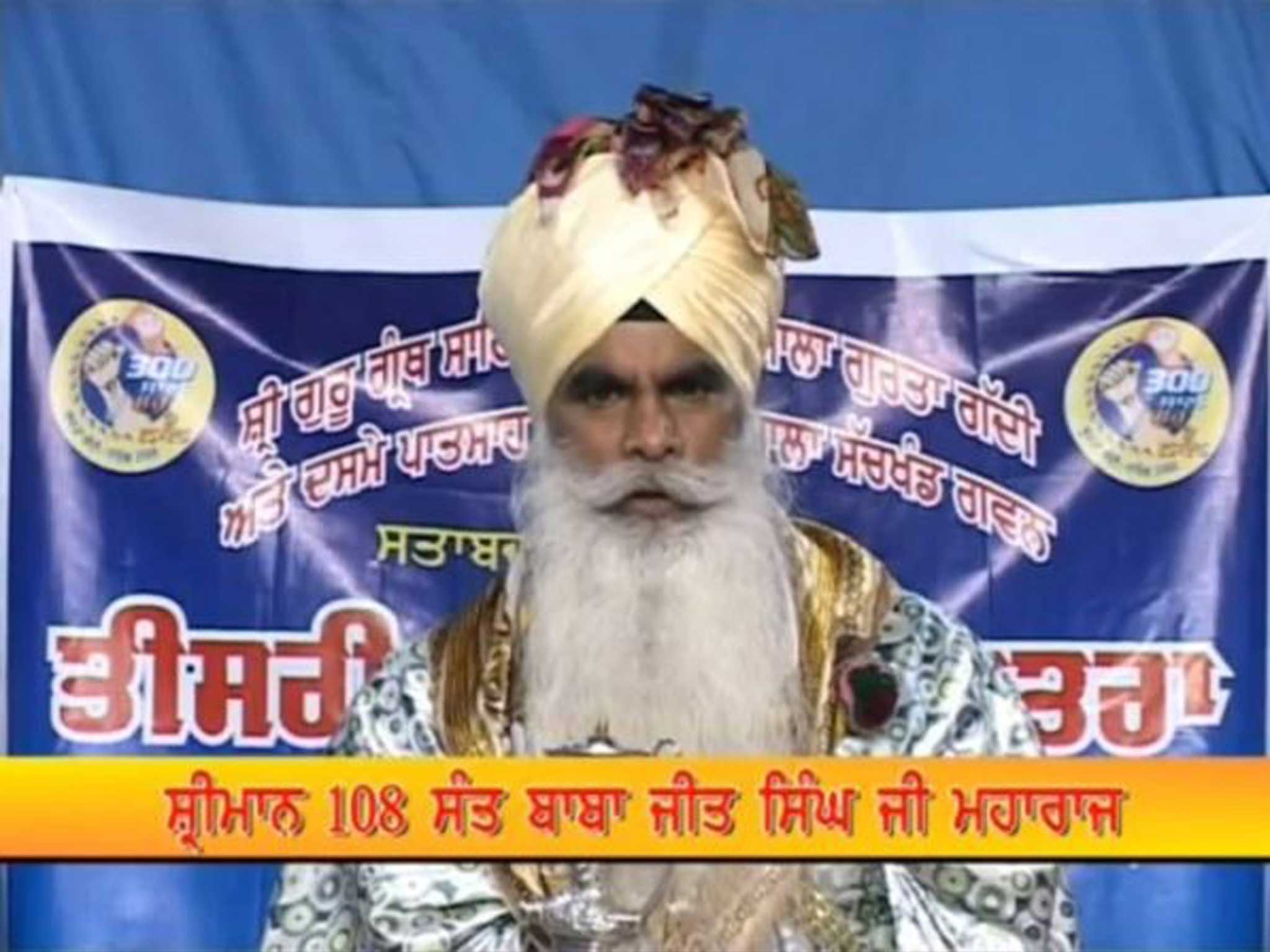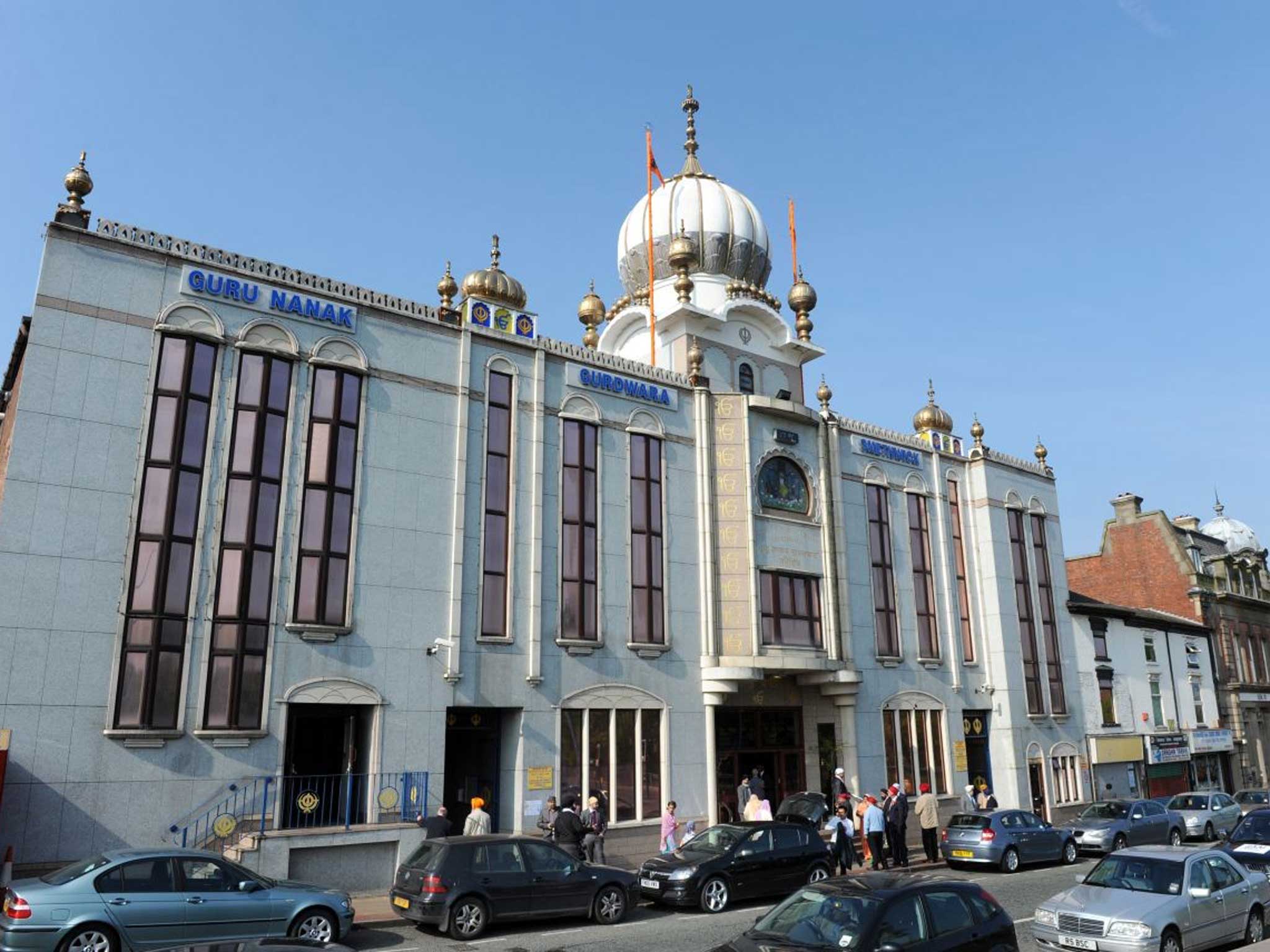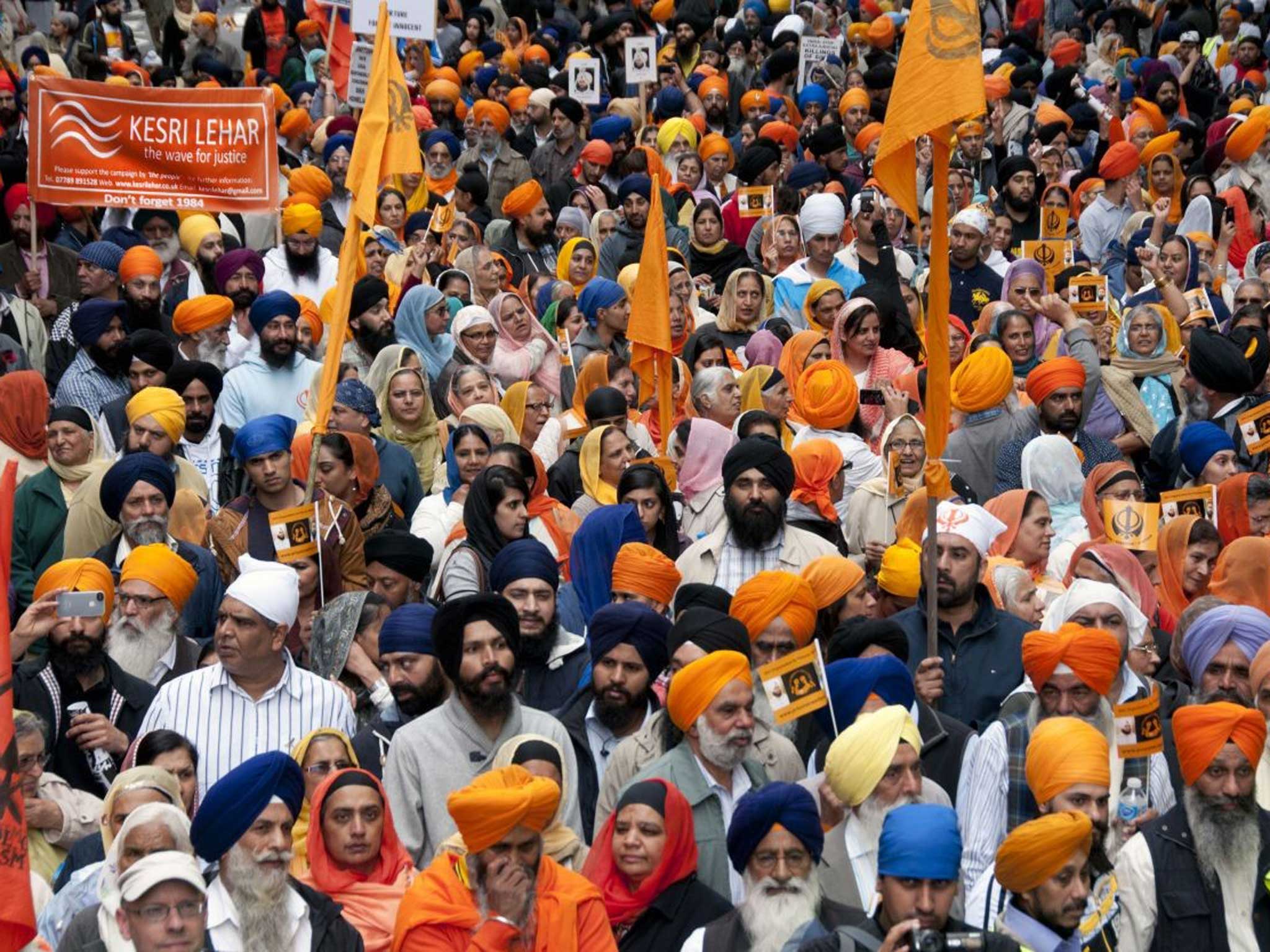Supreme Court to rule on status of Sikh 'saint'
Senior judges warned that the questions at the heart of the dispute posed an 'impossible task'

Your support helps us to tell the story
From reproductive rights to climate change to Big Tech, The Independent is on the ground when the story is developing. Whether it's investigating the financials of Elon Musk's pro-Trump PAC or producing our latest documentary, 'The A Word', which shines a light on the American women fighting for reproductive rights, we know how important it is to parse out the facts from the messaging.
At such a critical moment in US history, we need reporters on the ground. Your donation allows us to keep sending journalists to speak to both sides of the story.
The Independent is trusted by Americans across the entire political spectrum. And unlike many other quality news outlets, we choose not to lock Americans out of our reporting and analysis with paywalls. We believe quality journalism should be available to everyone, paid for by those who can afford it.
Your support makes all the difference.Britain's finest legal minds have been asked to make sense of some of life's thorniest problems, but few compare to that posed by the followers of Sant Baba Jeet Singh Ji Maharaj – specifically whether he is a Sikh saint, the Third Holy Saint in fact.
This week the Supreme Court will give its judgment on one of the more colourful legal predicaments to have come before the UK's highest justices. Ostensibly the fight is over the control of two Sikh gurdwaras, or temples, in Birmingham and High Wycombe. The saint's supporters argue he, as a "successor" via the Second Holy Saint to the First Holy Saint and founder of the temples, is entitled to hire and fire the trustees who run them. His opponents, however, do not recognise his authority and are contesting this. One difficulty is that the Second Holy Saint died without leaving a will or naming an heir to his leadership or the properties.
Experts point out that vital legal issues are at stake which could ensnare the Supreme Court justices in religious controversy. The case was rejected by Appeal Court judges in 2012, who said it should not proceed because it involved an "impossible task of resolving [issues about] religious doctrines and practices of adherents of the Sikh religion".

Lord Justice Mummery, who presided in the Appeal Court, warned that the questions at the heart of the dispute were "questions which a court has no business deciding because, if it attempted to do so, it would become embroiled in religious controversies about subjective beliefs and the linked internal affairs of a religious body, on none of which can the court properly make a judicial ruling".
He insisted the court was not letting the participants down, but was instead "doing them a favour". "The costly crudities, the outmoded methods and the unwelcome and often unpredictable outcomes endured in adversarial litigation are to be avoided, if at all possible," he said, and he advised them to pursue an alternative resolution.

Despite the senior judge's unusually frank advice, the saint's supporters insisted important broader issues were at stake, such as whether the rights and powers held by individuals within religious institutions can be enforced in a UK court of law or become redundant, and they took their case to the Supreme Court. After two days of arguments, five judges will give their verdicts, which legal experts say could have important consequences for the law and its involvement with religion. Legal sources say that religious activists have increasingly been trying to advance their beliefs and the claims of their churches through the courts. Religious discrimination cases in particular are testing the boundaries of human rights law.
In his summing up, Lord Mummery said the courts "do not decline to decide cases about civil rights, such as property and contract, or statutory rights such as employment rights, just because there is a religious element.
"Questions about the place of religion in our public life are far from unimportant. Religion gives meaning and purpose to some lives, while having no meaning or purpose for others. There will inevitably be disputes with a religious aspect which, however controversial and profound to those involved, cannot exclude or limit the jurisdiction of the civil courts to determine civil rights," he added.
Join our commenting forum
Join thought-provoking conversations, follow other Independent readers and see their replies
Comments